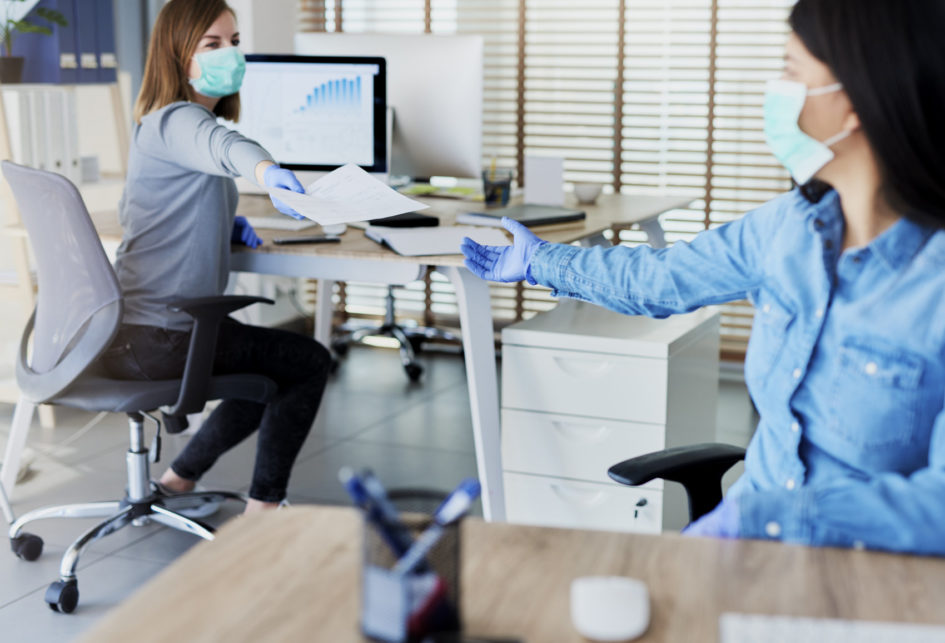If you are going back to in-person work during the aftermath of COVID-19, it can be difficult to know how to act and react in your workplace setting. There will be people who prefer extra precautions and those who do not. But no matter your outlook, it is important to practice a non-judgement mentality to reduce stigma when adapting back to work.
According to the CDC, “fear and anxiety about a disease can lead to social stigma toward people, places, or things. For example, stigma and discrimination can occur when people associate a disease, such as COVID-19, with a population or nationality, even though not everyone in that population or from that region is specifically at risk for the disease. Stigma can also occur after a person has been released from COVID-19 quarantine even though they are not considered a risk for spreading the virus to others.”
Some groups of people who may be experiencing stigma because of COVID-19 include:
- Persons of Asian descent
- People who have traveled
- Emergency responders or healthcare professionals
- People with the disease and their family and friends
- People released from quarantine
Stigma hurts everyone by creating fear or anger towards other people.
Stigmatized groups may be subjected to:
- Social avoidance or rejection
- Denials of healthcare, education, housing or employment
- Verbal, emotional and physical abuse
Stigma affects the emotional or mental health of stigmatized groups and the communities they live in. Stopping stigma is important to making communities and community members resilient.
How You Can Create a Judgement-Free COVID-19 Zone at Work
Everyone can help stop stigma related to COVID-19 by knowing the facts and sharing them with others in your community. Here are some ways you can help reduce the COVID-19 stigma at work:
- Getting the facts about COVID-19 from reputable sources such as the Centers for Disease Control and Prevention (CDC) and World Health Organization (WHO). Share them with your colleagues.
- Have respect for fellow colleagues and their personal comfort levels in regard to social distancing, wearing a mask, and COVID-19 protocols.
- Speaking up if you hear or see inaccurate statements about COVID-19 and certain people or groups.
- Reaching out to co-workers who may feel stigmatized. Ask how you can help. Listen to them and show that you understand and support them.
- Showing support for those who are caring for people with COVID-19. Thank them for their work and share positive messages.
- Create a designated group and/or coordinator to oversee COVID-19 protocols, possible issues and their impact at work. This person/group would help to prevent coworkers policing each other and reducing animosity.
- This would be a good time to create a new Wellness Champions team or add a COVID-19 committee to a current Wellness Champions team.
- Showing support for and thanking all who continue their essential jobs to help you and your community.
It is important to remember that everyone is in this together as we embark on a new way of living. Replacing rumors with facts, taking proper action, and showing support for your colleagues will help to make this transition easier for everyone.
Sources:
https://www.mayoclinic.org/diseases-conditions/coronavirus/in-depth/coronavirus-stigma/art-20484278
https://www.psychologytoday.com/us/blog/the-stigma-effect/202004/the-stigma-covid-19
https://www.cdc.gov/coronavirus/2019-ncov/daily-life-coping/reducing-stigma.html
https://hbr.org/2020/04/dont-let-fear-of-covid-19-turn-into-stigma


1 Pingback